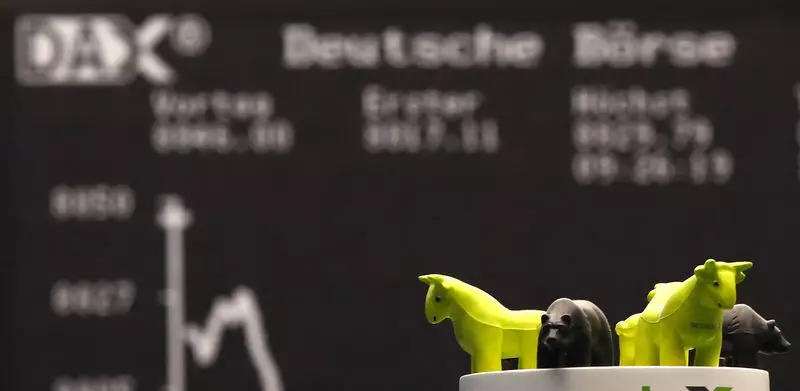As 2024 draws to a close, European stock markets are experiencing a modest downturn, reflecting a cautious attitude among investors eager to capitalize on profits after a year marked by relative stability and growth. On the last full trading day of the year, indices such as the German DAX remained predominantly unchanged, while France’s CAC 40 edged down by 0.1% and the UK’s FTSE 100 witnessed a slight decline of 0.3%. This mixed performance may be indicative of a broader trend where market participants choose to secure gains rather than take on additional risk ahead of the new year.
The European markets are gearing down as they approach the holiday season, leading to lower trading volumes and a decrease in volatility. Many trading platforms will close early on Tuesday, further contributing to a subdued atmosphere in the market. Despite the minor slip observed in the stocks today, the pan-European STOXX 600 index still appears poised to celebrate a commendable gain of approximately 5.5% for the year, showcasing the resilience and positive trajectory that the market has enjoyed throughout 2024.
Economic Factors Influencing Market Movements
Amid the year-end reassessment, recent economic data serves as a reminder of the complexities that European markets face. For instance, Spain reported an increase in its annual EU-harmonized inflation rate, rising to 2.8% in December from 2.4% in November. This uptick raises questions about the European Central Bank’s (ECB) monetary policy direction. The ECB’s recent decision to lower interest rates signifies an attempt to stimulate economic growth, but rising inflation poses challenges that could delay further cuts. ECB Governing Council member Robert Holzmann’s comments highlight the delicate balancing act the bank must perform, as any shifts in strategy can directly influence market sentiment.
In broader Eurozone news, inflation rose to 2.2% in November, creeping above the ECB’s target of 2%. This inflationary pressure may alter the projections and expectations for economic growth in the region, prompting investors to remain vigilant.
Sector-Specific Developments and Global Influence
Company-specific news is also shaping the investment landscape. Siemens Healthineers noticed a slight dip of 1% in its stock price following comments from Siemens’ Chief Financial Officer regarding a reevaluation of its holding in its medical technology division. Such corporate developments can have pronounced effects on stock prices, necessitating close monitoring from both investors and analysts.
Moreover, global oil prices are feeling the strain of reduced demand forecasts, particularly from China, the world’s primary oil consumer. On this trading day, crude oil prices have slightly decreased, with U.S. crude futures (WTI) hovering around $70.53 per barrel and Brent trading at approximately $73.69. The anticipated losses in 2024, with WTI down about 1.5% and Brent over 4%, further illustrate the interconnectedness of European markets with broader global economic trends.
While European stock markets are winding down for the New Year, various factors—including inflation rates, central bank strategies, and sector-specific responses—play critical roles in shaping market dynamics. Investors are likely to exercise caution as they transition into 2025, keeping a close eye on economic indicators that will dictate their next moves.

